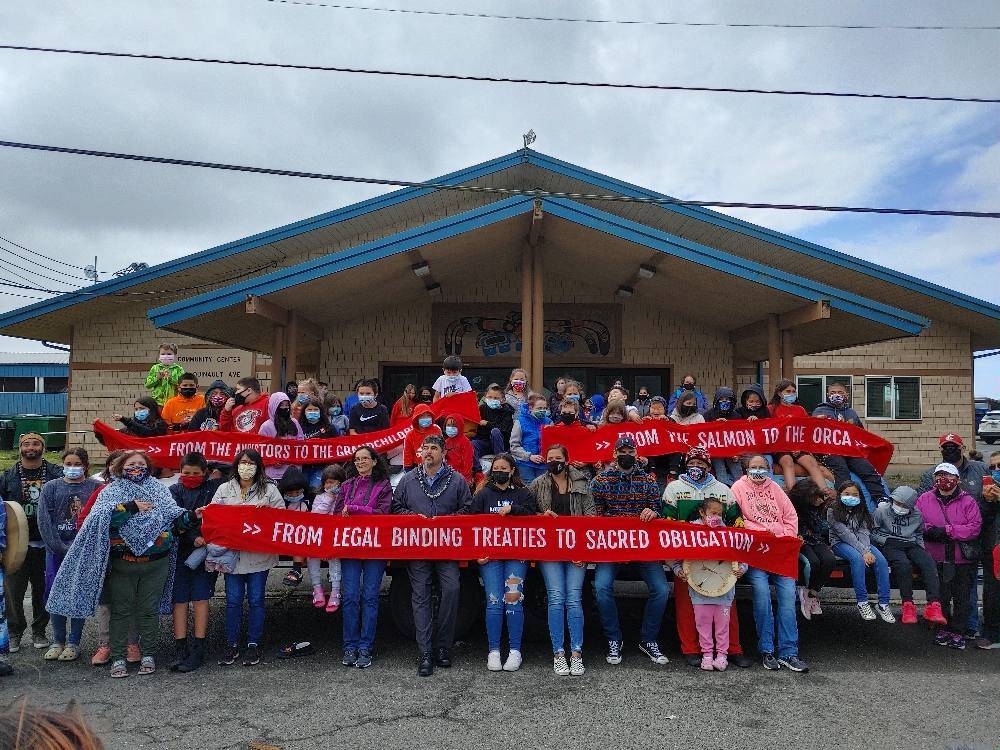A totem pole carved by tribal members of the Lummi Nation is headed to Washington, D.C., for a tribal summit this July. After making stops this week in Queets and Taholah, the 24-foot totem pole, carved from a 400-year-old cedar tree, continued on its journey, called the Red Road to D.C., where it will be presented to the Biden administration.
“In this moment of self-reflection across the United States and the acknowledgment of past and present injustices inflicted on Native Peoples and lands without consent,” says a statement on their website, “we invite all peoples to stand united with us to protect sacred places, and fulfill our ancestral and historic obligations to the First Peoples of these lands and waters.”
The tribal carvers who helped to craft it will accompany the piece on its 7,400 mile journey. Jewell Praying Wolf James, the only surviving member of the Lummi Nation’s House of Tears Carvers, said they will work with local tribes to perform blessings along the way, and to help highlight sacred sites threatened by development and resource extraction.
Quinault Indian Nation President Guy Capoeman said of the visit Thursday, “We have always viewed such projects as a way to share our culture, from our creator, with other communities and tribes, and to educate people on our sovereignty, treaty rights, and history. It was really a warm time to share, and it was a great tool to educate our youth on the importance of our history.”
While the totem pole’s tour has been affected by COVID-19, it includes stops in Oregon this weekend, California for the first part of June, then at the Oklahoma Rez-2-Rez Tour June 20 before coming back to Washington state to begin the official journey to the nation’s capital. The complete schedule is available at redroadtodc.org.
The final destination for the totem pole is the Smithsonian Institution’s National Museum of the American Indian where it will be displayed this fall.


